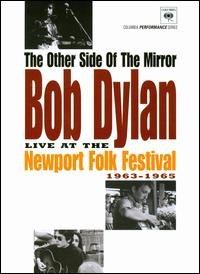
导演:
主演:
上映:
0
更新:
2024-11-15 14:48
剧情:
"Bob Dylan going electric" at the 1965 Newport Folk Festival is one of those epochal mome..
- 优酷影视
猜你喜欢
2023
0.0分
剧情片
韦尔·普莱斯 杰瑞德·哈里斯 尼古拉斯·汉密尔顿 杰米·哈里斯 托拜厄斯·西格尔 马丁·贾维斯 斯科蒂·迪贾科莫 埃莉斯·哈德森 乔纳斯·戴维斯 Ava Wrubel Shannon Destiny Ryan Searra Sawka Sasha Bhasin Phillip Chorba Kathy Patterson Lauren LoGiudice Cole Flanders 科尔·特里斯坦
/
<p> 杰瑞德·哈里斯将主演新片[勇敢面对黑暗](Brave The Dark,暂译)。本片由达米安·哈里斯执导,杰瑞德饰演的斯坦·迪恩是一名颇受欢迎的戏剧老师,他试图帮助一个任性的学生,同时还要处理他自己的问题。林恩·罗伯逊·海伊、戴尔·G·布拉德利为本片改编了约翰·P·斯宾塞的原创剧本。</p>
HD中字
2025
0.0分
剧情片
妮可·基德曼 盖尔·加西亚·贝纳尔 马修·麦克费登 裘德·希尔 杰夫·波普 伊萨克·克拉斯纳 莱南·帕拉姆 瑞秋·塞诺特 克里斯·维塔斯凯 River Brooks Jens Frederiksen Bill Russell 安德鲁·索德罗斯基 雅各布·莫兰 Irene Dewyn 乔纳森·帕夫洛夫斯基 Sue Rock Heather Marie Olsen Bethany DeZelle
/
<p> 密歇根州荷兰镇教师南希·范德格鲁特(妮可·基德曼 饰),她与担任社区领袖的丈夫弗雷德(马修·麦克费登 饰)、儿子哈里过着典型的美国田园生活。当南希与同事戴夫·德尔加多(盖尔·加西亚·贝纳尔 饰)偶然发现丈夫隐藏的秘密后,平静生活迅速崩解。</p>
HD中字
2023
0.0分
剧情片
这部电影的故事发生在 20 世纪 80 年代,围绕一对名叫苏珊娜(卢娜·玛雅饰)和苏里亚(艾哈迈德·梅甘塔拉饰)的夫妇展开。他们一直保持着长期的关系,并且彼此深爱着对方。当他们计划结婚时,他们的关系出...
正片
2024
0.0分
剧情片
正片
2024
0.0分
剧情片
正片
《镜子的另一面:纽波特民歌艺术节1963~1965》剧情介绍
影视大全提供影视作品镜子的另一面:纽波特民歌艺术节1963~1965高清全集在线观看的影视全集网,剧情片《镜子的另一面:纽波特民歌艺术节1963~1965》全集作品的导演是Murray Lerner ,由Bob Dylan Joan Baez Judy Collins 主演,镜子的另一面:纽波特民歌艺术节1963~1965在豆瓣的评分为0.0,本片由小编于2024-11-15 14:48更新,希望大家喜欢,可以把《镜子的另一面:纽波特民歌艺术节1963~1965》推荐给你朋友,本作品的地址为 http://jkmcf.com/movie/index27300.html
《镜子的另一面:纽波特民歌艺术节1963~1965》简介:"Bob Dylan going electric" at the 1965 Newport Folk Festival is one of those epochal moments in rock history that seemingly everyone has heard about, but what few people seem to know is that it wasn't some ephemeral event that we only know from word of mouth -- filmmaker Murray Lerner documented the performances at the Newport Festival for several years running, and The Other Side of the Mirror collects footage from the three years Dylan appeared at the celebrated folk gathering, allowing us to see Dylan's rise through the folk scene for ourselves. Watching Lerner's documentary, what's most remarkable is how much Dylan changed over the course of 36 months; the young folkie performing at the afternoon "workshop" at the side of Joan Baez in 1963 is at once nervy and hesitant, singing his wordy tunes while chopping away at his acoustic guitar and energizing the crowd without seeming to know just what he's doing. In 1964, Dylan all but owns Newport, and he clearly knows it; he's the talk of the Festival, with Baez and Johnny Cash singing his praises (and his songs), and his mand of the stage is visibly stronger and more confident while his new material (including "Mr. Tambourine Man" and "It Ain't Me, Babe") sees him moving away from the "protest songs" that first made his name. When the audience demands an encore after Dylan's evening set (Odetta and Dave Van Ronk were scheduled to follow him), Peter Yarrow tries to keep the show moving along while Dylan beams at the crowd's adulation, like the rock star he was quickly being. By the time the 1965 Newport Festival rolled around, Dylan's epochal "Like a Rolling Stone" was starting to scale the singles charts, and the hardcore folk audience was clearly of two minds about his popular (and populist) success. When Dylan, Fender Stratocaster in hand, performs "Maggie's Farm" backed by Al Kooper, Mike Bloomfield and the rhythm section from the Paul Butterfield Blues Band, the raucous but hard-driving number inspires a curious mixture of enthusiastic cheering and equally emphatic booing, and while legend has it that the version of "Like a Rolling Stone" that followed was a shambles, the song cooks despite drummer Sam Lay's difficulty in finding the groove, though if anything the division of the crowd's loyalties is even stronger afterward. After these two numbers, Dylan and his band leave the stage, with Yarrow (once again serving as MC) citing technical problems (if Pete Seeger really pulled the power on Dylan, as legend has it, there's no sign of it here); Dylan returns to the stage with an acoustic six-string to sing "Mr. Tambourine Man" and "It's All Over Now, Baby Blue" before vanishing into the night without ment. While much of the audience at Newport in 1965 wanted the "old" Dylan back, his strong, willful performances even on the acoustic stuff makes it obvious that the scrappy semi-amateur we saw at the beginning of the movie was gone forever, and the ovations suggest more than a few people wanted to see Dylan rock. Lerner's film tells us a certain amount of what we already knows, but it gently debunks a few myths about Dylan during this pivotal moment in his career, and his performances are mitted and forceful throughout; no matter how many times you've read about Dylan's Newport shoot-out of 1965, seeing it is a revelatory experience, and Lerner has assembled this archival material with intelligence and taste. This is must-see viewing for anyone interested in Dylan or the folk scene of the '60s.






